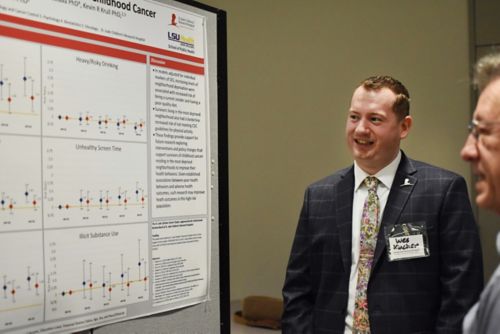As Wes Kinchen, 31, studies to become an epidemiologist, he has insights not taught in a classroom.
An epidemiologist is a scientist who studies health and disease in large groups of people. As a childhood cancer survivor, Kinchen has a special understanding of the health challenges survivors face.
That experience led him to pursue a career in science. Kinchen was diagnosed with acute lymphoblastic leukemia (ALL) at age 8. He was treated at St. Jude Children’s Research Hospital. Now he is working on his PhD in epidemiology at Louisiana State University Health Sciences Center New Orleans School of Public Health.
A few years ago, he spent a summer working with the St. Jude Lifetime Cohort Study (St. Jude LIFE) as a Master of Public Health student, mentored by Drs. Carmen Wilson and Kiri Ness.
Kinchen is interested in health problems called metabolic syndrome. He wants to study how they affect childhood cancer survivors and what factors may influence how severe disease is. Metabolic syndrome is a group of health conditions that can happen together and raise the risk for heart disease, diabetes, and stroke. These conditions include:
- High blood pressure
- High blood sugar
- Extra fat around your waist
- Low “good” cholesterol
- High levels of fat in your blood (called triglycerides)
For childhood cancer survivors, treatments like radiation, chemotherapy and certain hormones can sometimes affect how the body handles sugar and fat. This can make it easier to develop metabolic syndrome later in life.
“I want to find out about factors associated with a survivor having metabolic problems,” Kinchen says. “Is it the neighborhood where they live? Is it their income or social reasons? Are there certain health behaviors linked to metabolic syndrome? I want to also look at frailty and physical functioning and see if there's any kind of relationship happening there.”
Kinchen says childhood cancer survivors can take steps to prevent or manage some problems linked to metabolic syndrome. These steps include regular exercise and a healthy diet. When making changes, it is important to take small, gradual steps over time.
“It’s a marathon, not a sprint,” Kinchen says.



